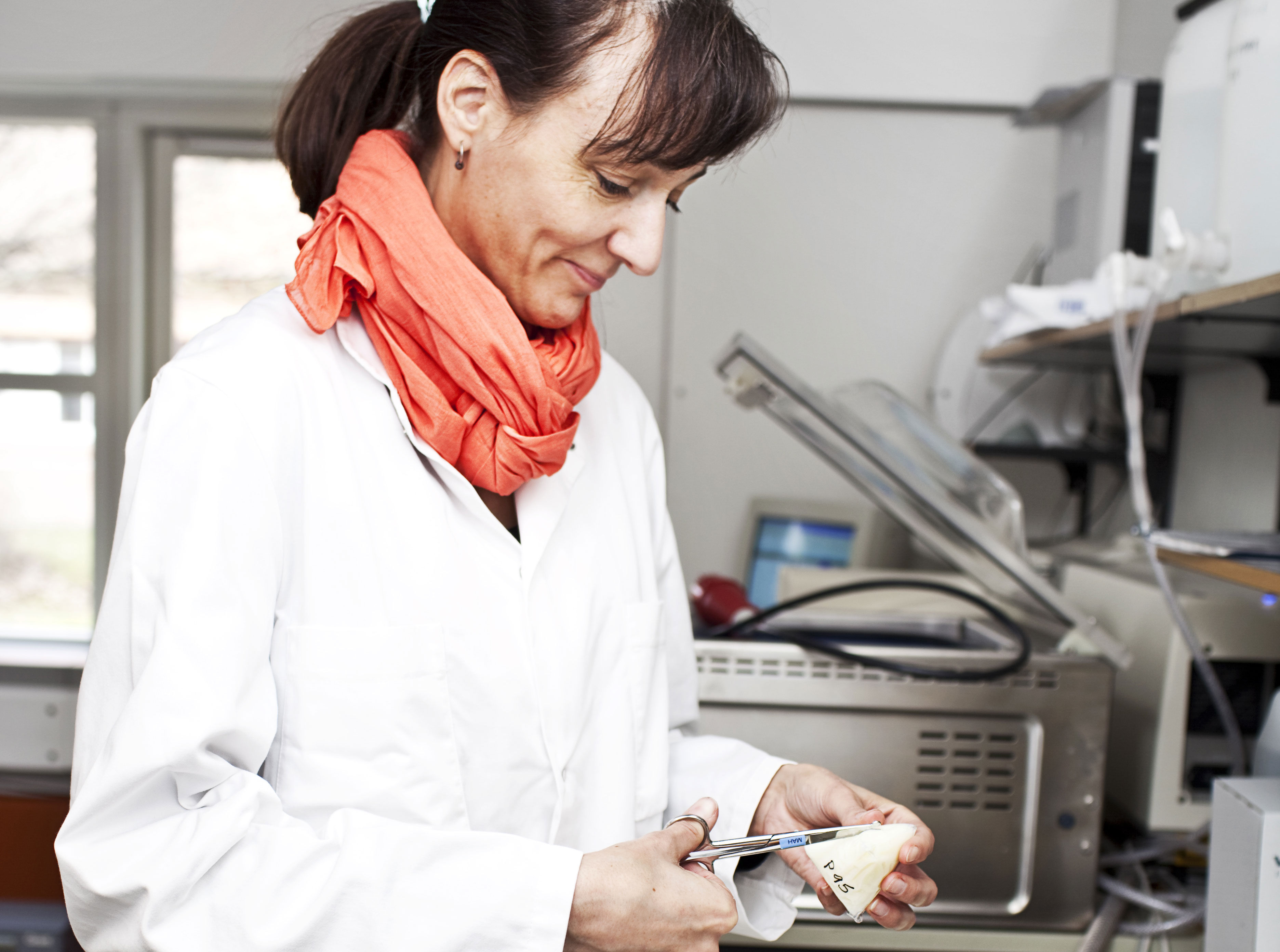Cheese to be made less salty
Food scientists at Aarhus University are leading a research project that aims to reduce the amount of salt added to cheese without losing characteristic flavours and textures.

Salt has come under scrutiny in recent years because it is associated with hypertension and cardiovascular disease. Meanwhile, salt is an important ingredient in the manufacture of cheese as salt, among other things, affects the taste, texture, food safety and the overall perception of cheese.
A new research project that scientists at Aarhus University will be spearheading will investigate the impact of reduced salt levels in cheese on its structure, texture, taste and the microbiology of cheese starter cultures, and will seek alternative solutions via ingredients and technologies that can improve the properties of cheese at lower salt levels.
- A high salt content has a variety of health effects, and from the point of view of industry, research and the common good it is very relevant to study the feasibility of reducing the salt content of basic foods like cheese. It is necessary for the Danish dairy industry's reputation and sales that we are one step ahead when it comes to salt in our products and the impact on public health, says project leader, associate professor Marianne Hammershøj from Aarhus University.
On the political front, there are initiatives under way that seek to reduce the amount of salt in foods. The EU launched in 2008 a programme to reduce salt in the diet by 16 percent over four years, and especially the salt content of bread, meat, cheese and readymade meals is to be reduced. The WHO goes one step higher and recommends a reduction in the daily salt intake of 30 percent.
In the project, the scientists will, among other things, use cheese models of yellow and white cheeses. A yellow cheese model will be prepared and different concentrations of salt added in the brine. Similarly, a white cheese model will be used where a varying amount of salt will be added to concentrated milk before the ripening process. Subsequent model analysis will give knowledge of the importance of salt for the structural composition of cheese shape, cheese texture, crust formation and binding of water.
Another part of the project involves a six-to eight-week study where a consumer panel will taste cheese, where the salt content is gradually reduced. Data from this part will be compared with a sensory method called TDS (Temporal Dominance of Sensations), which is deemed well suited to registering the release of the salty taste and information about how cheese is perceived during the chewing phase.
New knowledge may lead to new products
The project is a collaboration between Thise Dairy, Arla Foods amba, Chr Hansen A/S, Norwich Research Park and University of Copenhagen, and Marianne Hammershøj expects that the knowledge acquired from the project will benefit the industry:
- The participating dairies and other Danish cheese dairies will acquire new knowledge of salt reduction in cheese and how salt affects the structure, texture, flavour and development of the microbial flora. They will also acquire knowledge of how the processing and the adding of ingredients can address the challenges involved in reducing salt levels. The knowledge can be used directly in the development of novel cheeses - with lower salt content and with new sensory and textural qualities, she explains.
The project "A grain of salt" runs from 1 May 2012 until 31 October 2015.
The project has the following participants:
- Department of Food Science, Aarhus University
- Department of Food Science, University of Copenhagen
- Thise Dairy
- Arla Foods
- Chr Hansen
- The Institute of Food Research, UK
The project has a total budget of 10.7 million DKK and funding has been obtained from the Danish Dairy Research Foundation, Arla Foods amba and the Future Food Innovation consortium of region Midtjylland.
Further information: Associate professor Marianne Hammershøj, Department of Food Science, Aarhus University, telephone: +45 8715 7974, email: mah@agrsci.dk
Marianne Hammershøj from the Department of Food Science at Aarhus University is leading the research project "A pinch of salt", where the purpose is to reduce the amount of salt in cheese and create a cheese that will be palatable to consumers. Photo: AU
